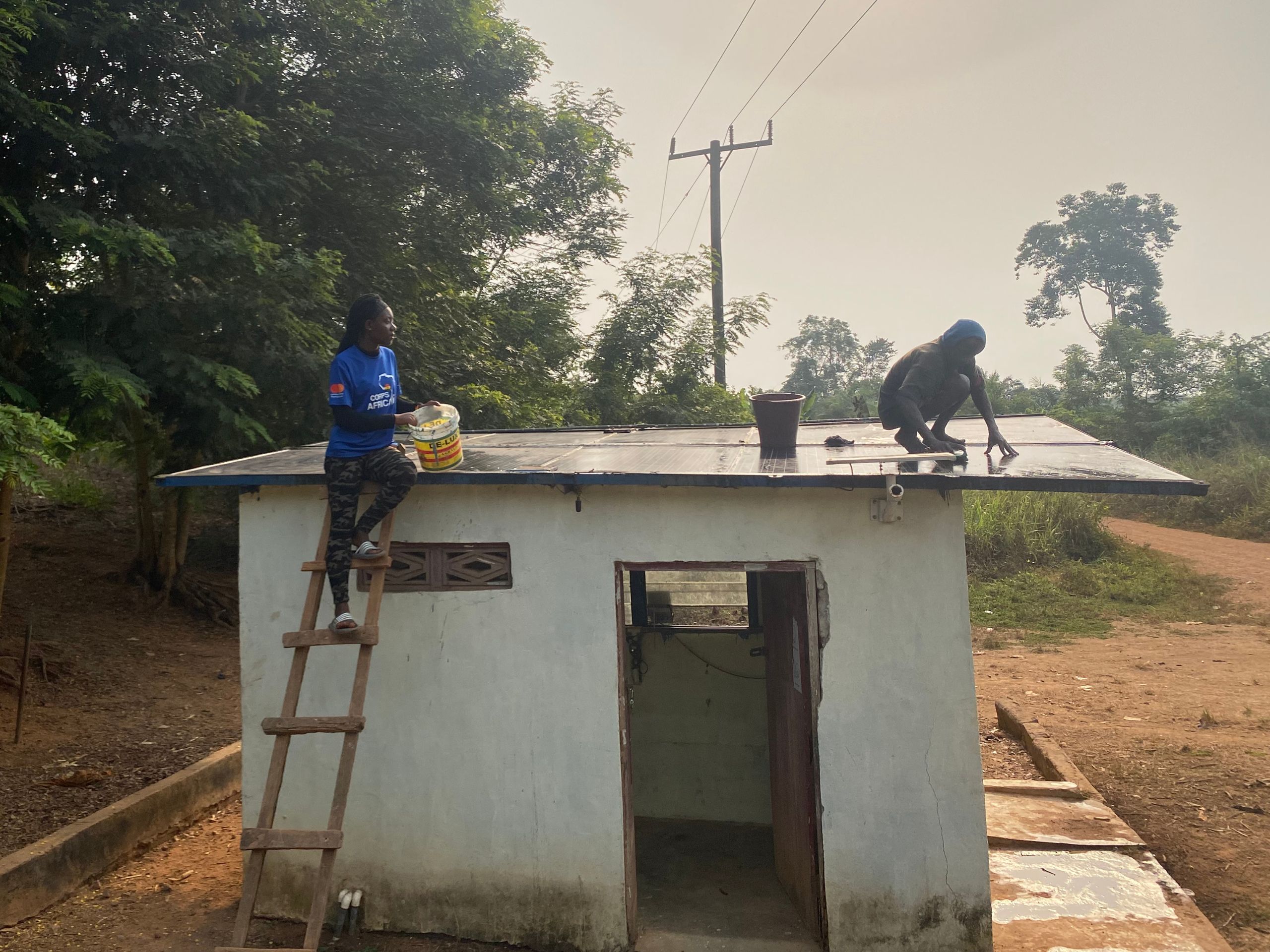They say, “Water is life.” But for my community, it became a luxury we could only dream of. For two long years, we endured the harsh reality of water scarcity, as the solar-powered water facility couldn’t produce enough to serve the entire population. Every dry season reminded us how fragile life becomes when access to something as basic as water is taken away. Buckets remained empty. Mothers walked miles in search of a few liters. Children missed school just to fetch water from distant streams.
As the weeks turned into months, frustration grew. Some blamed the sun. Others blamed the system. Many simply gave up. Suggestions of replacing the entire system surfaced, but so did doubts: “Who will fund it? Will it break again?”
As a CorpsAfrica Volunteer, I’ve been trained to approach challenges differently—with tools like the Innovator’s Compass, which guides us to pause, ask the right questions, deeply understand people’s experiences, and together uncover local solutions.
So I started with a simple step: asking and listening—not just to what was being said, but to what wasn’t.
After sharing our observations with a technical expert, he asked a question that changed everything: “When was the last time the solar panel was cleaned?”
No one could remember.
With just water, a cloth, and a sense of responsibility, we cleaned the dust that had quietly paralyzed the system. And as the sun struck the freshly wiped panel, the pump stirred—and water began to flow once again.
Today, my community has water again. But this wasn’t just about water. It was about empowerment. We didn’t need a new system. We didn’t need external donations. We just needed to care, to observe, to act, and to believe that we could take charge of our own development.

